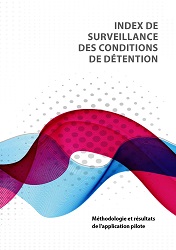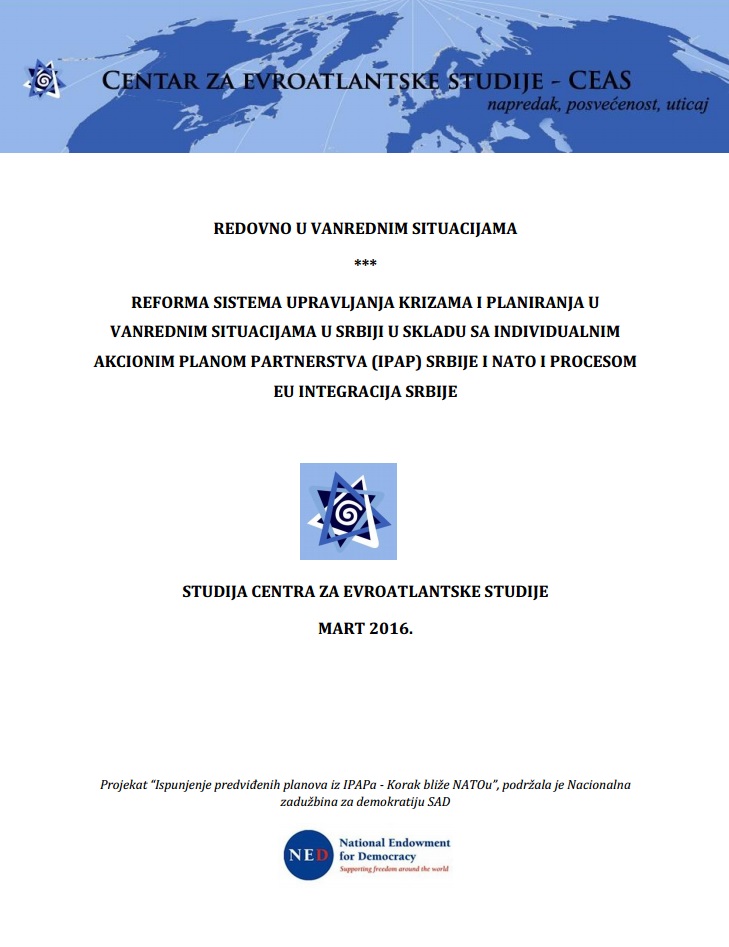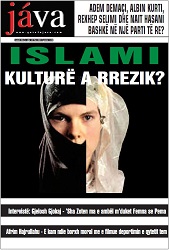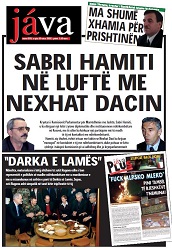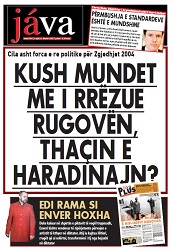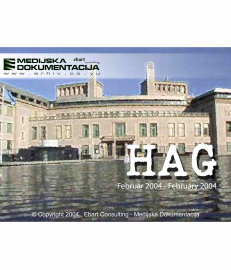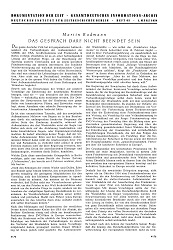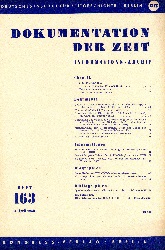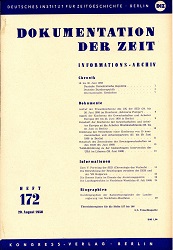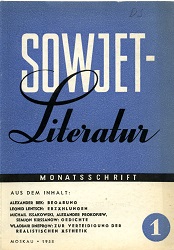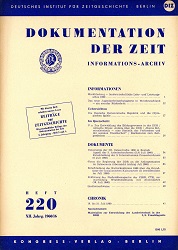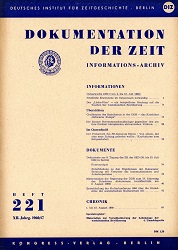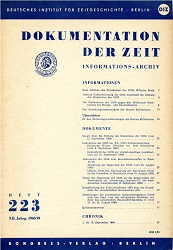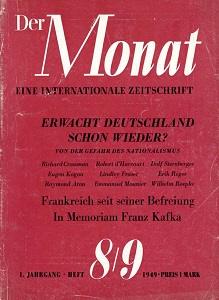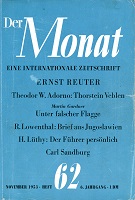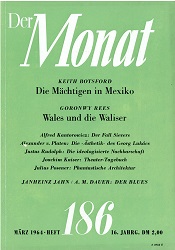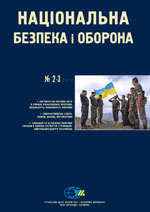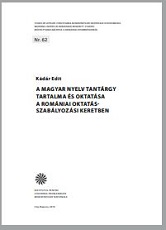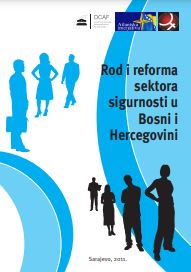HELSINŠKE SVESKE №21: Srpsko-albanski dijalog 2005: budući status Kosova
Author(s): / Language(s): Serbian
Keywords: future status of Kosovo; conference; politics; Serbia; Albania; North Macedonia; Croatia; democratic society; regional stability; minority; international standards; decentralization; security;
The Helsinki Committee for Human Rights in Serbia organized a two-day conference “The Future Status of Kosovo” on June 13-14, 2005 in Prishtina. The conference not only stood for the third in the series of Serb-Albanian dialogues the Committee has staged over the past eight years, but also for the final and most important segment of the US Institute for Peace-supported project “Belgrade - Prishtina: Steps to Build Confidence and Understanding.” The idea behind the conference was to provide – on the eve of the announced startup of negotiations on Kosovo’s status – a realistic insight into the complexity of this major regional issue. The book’s contents – authentic discussions of the conference participants – practically figures for a public debate on a reality and real problems. Regardless of many a different stand, the conference participants, Serbs and Albanians alike, attempted to conceptualize a policy that moves towards a lasting solution and regional stability. A policy as such implies a sober assessment of Kosovo’s reality, as well as of possibilities, problems and constraints. The two-day conference, echoing more in Prishtina and somewhat less in Belgrade, assembled a number of outstanding political and public figures from Prishtina – Albanians, Serbs and people from Kosovo’s other ethnic communities, all of them concerned with their own future and ready to acknowledge major changes in the Kosovo society in the past six years. The same were the considerations of the participants from Belgrade, the people standing for Serbia’s alternative politics, and of Podgorica’s officials. Representatives of the international community and regional neighbors, Macedonia and Croatia, also partook in the conference and creatively contributed to the exchange of views. “Key international players were clear that that the startup of the talks about Kosovo’s future status is on the international agenda this year. And now it is on political leaders and institutions to demonstrate that they aim at building a stable, tolerant, multiethnic and democratic society in Kosovo, a society in which all communities will be living together in peace and in peace with their neighbors. It is time for all sides to let go short lived politics, join in a dialogue about real problems in good faith, with passion and constructiveness, and take all measures we know are necessary. This conference is a good start in the right direction. We need more such dialogues, said Soren Jessen Petersen, the UN Secretary General Special Representative, addressing the conference. The conference was organized in five panels: “Kosovo in the Context of Regional Stability,” “Minorities and International Standards in Kosovo,” “Decentralization and its Implications in Kosovo,” “Post-Conflict Rehabilitation” and “Status of Kosovo.” The first panel, “Kosovo in the Context of Regional Stability” chaired by Professor Enver Hasani, broached key security aspects, the role of Kosovo’s future army under civilian control, regional security challenges not only in the event of Kosovo’s independence, but also of Montenegro’s, the state of a ff airs in Kosovska Mitrovica as a major problem to be solved, etc. “Unconditional safety of minority communities is a key standard preconditioning stability and the pace of solving future status of Kosovo,” concluded, inter alia, the second panel “Minorities and International Standards in Kosovo,” chaired by lawyer Azem Vllasi. The discussion also highlighted that the return of all displaced persons and refugees was a priority task of all Kosovo institutions and factors. As for Kosovo Serbs, their integration into Kosovo society, as many put it, is their right, the same as their right to live safely in their homes is a fundamental human right without any alternative solution whatsoever. According to Vera Markovic, who chaired the third panel “Decentralization and its Implications in Kosovo,” the discussion that resembled a parliamentary debate indicated that political power was being gradually institutionalized. “It’s most encouraging that different positions on the decentralization plan do not divide the political sphere into Serbian and Albanian parts, but into groupings that include both Albanian and minority parties…I would say that the debate on decentralization testifies that Kosovo society obviously endeavors to let go the issues related to ‘outer freedom’ or freedom from domination and come to grips with the question of ‘inner freedom’ that cannot but benefit all minorities, ethnic and political alike,” said Vera Markovic. What marked the panel “Post-Con fl ict Rehabilitation,” but the entire conference as well, was the stance that position of minorities was a measure of any society’s democratic potential. In this context, as Dr. Olga Popovic-Obradovic put it, still rather high interethnic tensions make the situation in Kosovo extremely complex. Referring to preconditions of post-conflict rehabilitation, she singled out the issues brought forward by panelists, ranging from acknowledgment and condemnation of crimes and the policy that has given birth to it, lustration and individual accountability to culture as a lasting value linking people and nations. Summing up the “Status of Kosovo” panel, its chair, Sonja Biserko, said that the view that prevailed – at the panel and throughout the conference – was that some form of Kosovo’s independence was unquestionable. However, the panel itself, she added, was more focused on the sum and substance of Kosovo’s independence. It is impossible to ignore the past, the recent past in particular, as it brought about the situation under discussion. In other words, what should be recognized are not only developments in the recent past, but also the fact that the Greater Serbia project that generated ex-Yugoslavia’s disintegration persists as an illusion to come true once the international constellation changes. Therefore, Serbs should reconcile not only with Albanians, but also with all neighbors – Croats, Bosniaks and, in a manner of speaking, with some minorities in Serbia proper, according to Biserko. The conference ended by adopting a declaration welcoming the international community’s intention to tackle the future status of Kosovo as a priority issue of its agenda. Taking into account that the Contact Group has already defined the framework for negotiations that should ensure regional security and stability, and open the door to Western Balkans’ association with and ultimate membership of the European Union, “cognizant that such approach by the international community and favorable circumstance should not be allowed to pass by, and confident that this provides a unique momentum for all regional leaders to prove their political wisdom, constructiveness and genuine commitment to true interests of peoples and citizens,” participants in the conference, “call on Belgrade and Prishtina, as two directly involved parties, to engage in a substantial dialogue with maximum good will and to fully cooperate with representatives of the international community; request political actors on both sides to acknowledge Kosovo’s reality as the starting point for negotiations, while constantly bearing in mind legitimate interests of Serbs, Albanians and other communities in Kosovo, and to insist on the respect and full implementation of all international documents and standards dealing with human and minority rights,” quotes, inter alia, the unanimously adopted declaration.
More...
